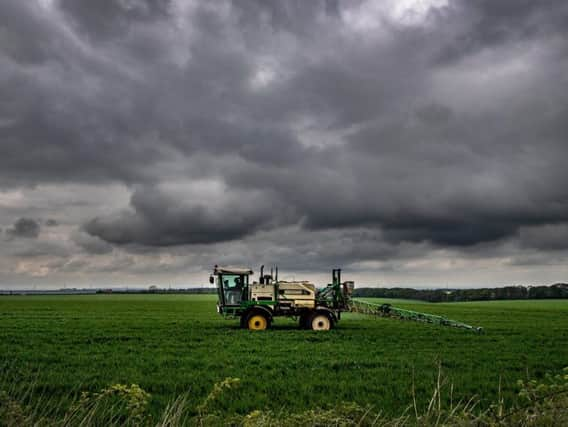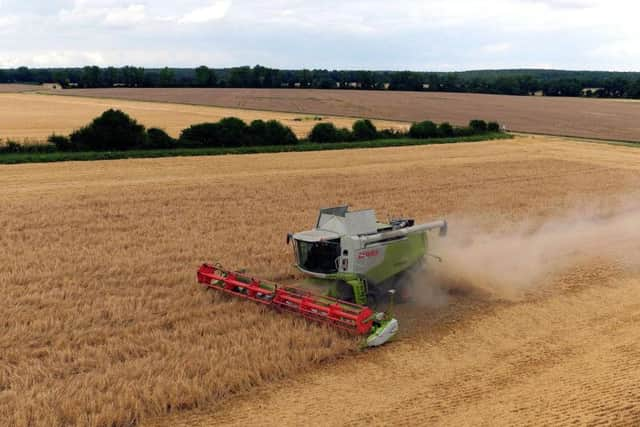Chemical bans heap pressure on farmers to feed a growing nation


Trust in good science and allow farmers to deliverPrecision farming education gets £3.4m boost at Yorkshire colleges Bishop Burton and Askham BryanChris Packham warns of “enormous volume” of pesticides harming wildlifePublic perceptions that all chemicals are bad for the environment raise fears that more substances used routinely to help farmers grow large quantities of produce will be banned in the future, the Agriculture and Horticulture Development Board (AHDB) has warned.
According to the industry body, an “integrated” approach to managing pests and diseases will soon no longer just be an option for farmers. Instead, the deployment of complementary crop protection techniques will become a “mandate to operate”.
Advertisement
Hide AdAdvertisement
Hide AdIt said the use of chemicals to produce sufficient and safe food for a growing population has become an intrinsic part of farmers’ and growers’ “toolkits”, however environmental concerns have led to a lengthening list of chemicals being banned from use.


AHDB said that until farming is possible on a viable scale without the use of pesticides, the industry must adopt “a fully integrated approach” to managing pests, weeds and diseases that limits the use of chemicals.
'Fewer tools'
Jon Knight, the levy body’s head of crop protection, said: “Our farmers are more than aware that there are hundreds of species of weeds, diseases and plant-eating insects, which severely impact farmers’ ability to produce high quality food. Additionally, those pests are developing resistance to existing crop protection measures.
“There are now fewer tools to protect crops and we expect this decline to continue. An integrated approach to managing pests and diseases will no longer be an option, but a mandate to operate.”
Advertisement
Hide AdAdvertisement
Hide AdMr Knight said AHDB is in a “unique” position to work with farmers and growers, to lead the development of a plan and enable the industry to address the challenges thrown up by a shrinking chemical toolkit over the next 25 years.
A new hope
AHDB works with industry partners, government regulators and others to help the agricultural industry gain approval for new, sustainable methods to protect crops and the environment.
Mr Knight said new ways of tailoring methods to protect crops were continually being developed – an example of which was now being able to collect disease spores with traps and then test the samples to establish if a disease is present and what the best method is to rapidly treat it.
A divergence from traditional crop protection methods is heaping extra pressure on farmers though.
Advertisement
Hide AdAdvertisement
Hide AdMr Knight said: “To target pests and diseases, farmers and growers are also needing to become technical experts to process information on weather, forecasts, and control choices to deal with our changing conditions.”
Up to 40 per cent of global crop yields are lost each year due to pests, weeds and diseases, estimates by the UN Food and Agriculture Organisation suggest.
Substances under threat
Farmers have relied on chemicals to control crop diseases for at least 2,000 years but a number of chemicals used on crops have been banned in recent years.
Methaldehyde, a pesticide to control slugs, will be banned from next spring over fears of the risk it poses to birds and mammals, and chlorothalonil, a fungicide that has been used across the world for more than 50 years, will be banned from use next May.
Advertisement
Hide AdAdvertisement
Hide AdThe European Union has also banned the use of insecticides known as neonicotinoids on all crops grown outdoors after they were linked with harming bees.
In the long-term, the future of widely-used glyphosate-based herbicides such as Round Up are also in doubt.
The EU re-licenced glyphosate for five years in 2017, despite an International Agency for Research on Cancer ruling two years earlier that it is “probably carcinogenic”.